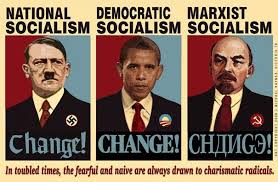The Biggest Economic Mistake Since The Days Of Herbert Hoover
Rep. McClintock gave the following floor speech in opposition to the Cap and Trade legislation on June 26, 2009.
I had a strange sense of Deja Vu as I watched the self-congratulatory rhetoric on the house floor tonight, and I feel compelled to offer this warning from the Left Coast.
Three years ago, I stood on the floor of the California Senate and watched a similar celebration over a similar bill, AB 32. And I have spend the last three years watching as that law has dangerously deepened California's recession. It uses a different mechanism than Cap and Trade, but the objective is the same: to force a dramatic reduction in carbon dioxide emissions.
Up until that bill took effect, California's unemployment numbers tracked very closely with the national unemployment rate. But then in January of 2007, California's unemployment rate began a steady upward divergence from the national jobless figures. Today, California's unemployment rate is more than two points above the national rate, and at its highest point since 1941.
What is it that happened in January of 2007? AB 32 took effect and began shutting down entire segments of California's economy. Let me give you one example from my district. The City of Truckee, California was about to sign a long-term power contract to get its electricity from a new, EPA-approved coal-fired electricity plant in Utah. AB 32 and companion legislation caused them to abandon that contract. The replacement power they acquired literally doubled their electricity costs.
So when economists warn that we can expect electricity prices to double under the cap and trade bill, I can tell you from bitter experience that in my district, that's not a future prediction, that is an historical fact.
Gov. Schwarzenegger assured us that AB 32 would mean an explosion of new, green jobs — exactly the same promises we're hearing from cap and trade supporters. In California, exactly the opposite has happened. We have lost so many jobs that the UCSB economic forecast is now using the D-word – Depression – to discuss California's job market.
M. Speaker, the Cap and Trade bill proposes what amounts to endlessly increasing taxes on any enterprises that produce carbon dioxide or other so-called greenhouse gas emissions. We need to understand what that means. It has profound implications for agriculture, construction, cargo and passenger transportation, energy production, baking and brewing – all of which produce enormous quantities this innocuous and ubiquitous compound. In fact, every human being produces 2.2 pounds of carbon dioxide every day – just by breathing.
So applying a tax to the economy designed to radically constrict carbon dioxide emissions means radically constricting the economy.
And this brings us to the fine point of it.
When you discuss the folly of the Hoover Administration – how it turned the recession of 1929 into the depression of the 1930's, the first thing that economists point to is the Smoot-Hawley Tariff Act that imposed new taxes on over 20,000 imported products.
Waxman Markey is our generation's Smoot Hawley. In fact, it's worse because it imposes new taxes on an infinitely larger number of domestic products on a scale that utterly dwarfs Smoot-Hawley.
Let's ignore for the moment the fact that the planet's climate is constantly changing and that long term global warming has been going on since the last ice age. Let's ignore the fact that within recorded history we know of periods when the earth's climate has been much warmer than it is today and others when it has been much cooler. Let's ignore the thousands of climate scientists and meteorologists who have concluded that human-produced greenhouse gases are a negligible factor in global warming or climate change.
Ignore all of that and still we are left with one lousy sense of timing. In the most serious recession since the Great Depression – why would members of this house want to repeat the same mistakes that produced that Great Depression? Watching how California has just wrecked its economy and destroyed its finances, why would they want to do the same thing to our nation?
M. Speaker, this is deadly serious stuff. It transcends ideology and politics. This House has just made the biggest economic mistake since the days of Herbert Hoover.
If this measure becomes law, two things are certain.
First, our planet will continue to warm and cool as it has been doing for billions of years.
Second: Congress will have delivered a staggering blow to our nation's economy at precisely that moment when that economy was the most vulnerable.

 Oldies
Oldies
 Harrolds.Blogspot.com
Harrolds.Blogspot.com











 Legislation Pending in Congress
Legislation Pending in Congress







No comments:
Post a Comment
Please, avoid posting advertisements. Content comments are welcomed, including anonymous. Posts with profanity will not be published.